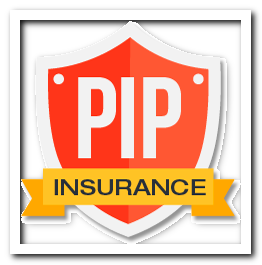 Courtesy of iii.org
Courtesy of iii.org
Whether you have a luxury in-ground pool, or plan to blow up an inflatable kiddie pool, it is important to consider the safety implications.
There are an estimated 7.4 million swimming pools and five million hot tubs in residential or public use in the United States, according to the Centers for Disease Control and Prevention (CDC). Furthermore, there are over 3,400 fatal unintentional drownings in the United States each year, with more than one out of five drowning victims being a child 14 years old or younger, according to the CDC.
The I.I.I. suggests taking the following steps if you own or are considering purchasing a pool or spa:
- Contact your town or municipality
Each town will have its own definition of what constitutes a “pool”, often based on its size and the depth of the water. If the pool you are planning to buy meets the definition, then you must comply with local safety standards and building codes. This may include installing a fence of a certain size, locks, decks and pool safety equipment. - Call your insurance agent or company representative
Let your insurance company know that you have a pool, since it will increase your liability risk. Pools are considered an “attractive nuisance” and it may be advisable to purchase additional liability insurance. Most homeowners policies include a minimum of $100,000 worth of liability protection. Pool owners, however, may want to consider increasing the amount to at least $300,000 or $500,000. You may also want to talk to your agent or company representative about purchasing an umbrella liability policy. For an additional premium of about $200 to $300 a year, you can get $1 million of liability protection over and above what you have on your home. If the pool itself is expensive, you should also have enough insurance protection to replace it in the event it is destroyed by a storm or other disaster. And, don’t forget to include the chairs, tables or other furniture around the pool deck.
If you have a pool, the I.I.I. recommends taking the following safety precautions:
- Install a four-sided barrier such as a fence with self closing gates to completely surround the pool. If the house forms the fourth side of the barrier, install alarms on doors leading to the pool area to prevent children from wandering into the pool or spa unsupervised. In addition to the fences or other barriers required by many towns, consider creating several “layers of protection” around the pool, in other words setting up as many barriers (door alarms, locks and safety covers) as possible to the pool area when not in use.
- Never leave small children unsupervisedeven for a few seconds. And never leave toys or floats in the pool when not in use as they may prove to be a deadly temptation for toddlers trying to reach them who might then fall into the pool.
- Keep children away from pool filters and other mechanical devices as the suction force may injure them or prevent them from surfacing. In case of an emergency, know how to shut off these devices and clearly post this information so others can do so too.
- Ask if pool users know how to swim. Learners should be accompanied by a good swimmer. If you have children, have them take swimming lessons as early as possible. And, do not allow anyone to swim alone.
- Check the pool area regularly for glass bottles, toys or other potential accident hazards. Also, keep CD players, radios and other electrical devices away from pools or nearby wet surfaces.
- Limit alcohol use around the pool, as drinking alcoholic beverages negatively impacts balance, coordination and judgmentand its effects are further heightened by sun exposure and heat. The CDC reports that alcohol use is involved in up to half of adolescent and adult deaths associated with water recreation.
- Clearly post emergency numbers on the phone, in the event of an accident. Keep a first aid kit, ring buoys and reaching poles near the pool. You may also want to consider learning basic water rescue skills, including first aid and CPR training. For additional information, contact the American Red Cross.



